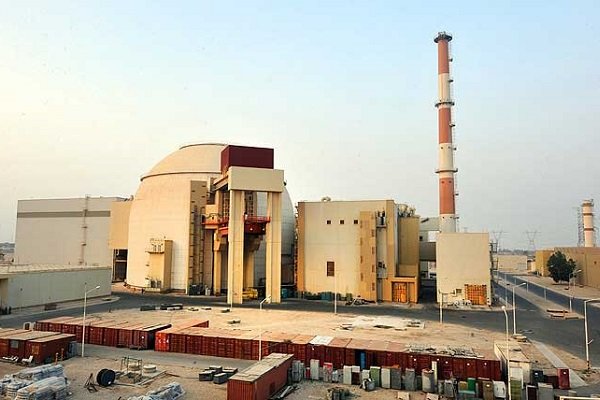Types of Construction Insurance
Iranian insurance companies issue wide range of policies same as London Standard terms and conditions.
A property owner undertaking a construction project could seek to insure a number of things related to the project—for example, the building, materials in transit, etc. Depending on the nature of the contract, a contractor for that same project might require different types of coverage, such as general liability and commercial auto insurance. Below is more information about the various types of coverage available.
1. Builders Risk (Course of Construction) Insurance
Builders risk insurance, also known as course of construction (COC) insurance, or sometimes construction all risk insurance, is insurance coverage for buildings and other structures while they are under construction. More specifically, the insurance policies will usually have options to cover the following types of property:
- Building materials
- Foundations
- Temporary structures such as scaffolding
- Paving, fencing, outdoor fixtures
- Lawns, trees and plants installed by the builder
Insurance providers generally cover the most common types of construction projects, including:
- Residential new construction
- Residential remodeling
- Model homes and model home contents
- Commercial property construction
-
Typically, insurers will offer “premium coverage” options, which cost more, but can extend the coverage limits, insurable events, and/or insurable property for the policy. Damages from earthquakes or flooding will generally not be covered, unless coverage for those types of events is added to the policy. Insurance providers may also specify some exclusions in the policy that protect them from covering damages that occur under specific conditions or from policyholder negligence.
2. Commercial and Contractor General Liability Insurance
General liability insurance, sometimes called commercial general liability (CGL) insurance or contractor general liability insurance, is a class of insurance that provides liability protection to businesses in the case of bodily harm or property damage during the course of business. Insurance providers create various versions of these policies available to professionals in construction and for construction projects. Whether you are the property owner, a construction company, or a contractor, liability insurance policies are available to protect policyholders from unnecessary risk. So often, these plans will be advertised as Contractor General Liability Insurance or General Liability Insurance for Builders.
General liability insurance policies will usually cover a broad range of damages, including:
- Faulty workmanship
- Job-related injury
- Advertising injury / defamation
Contractors or developers may actually be required to have a minimum level of liability insurance either by law or to win certain contracts that require it. Companies who complete many design-build projects will definitely want to have liability insurance in case they are sued for mistakes. Also, subcontractors are frequently required to carry liability insurance in order to work for certain general contractors.
General liability insurance policies are available through various providers for the following types of businesses:
- Residential general contractors (RGC)
- Developers
- Remodelers
- Light commercial general contractors
- Trade / specialty contractors (HVAC, electrical, plumbing, etc)
Like Builders Risk and other types of insurance coverage, certain exclusions are likely to be defined in the policy, protecting the insurance company from having to cover certain types of damages or incidents.
3. Commercial Auto Insurance
Commercial auto insurance, or commercial vehicle insurance, isn’t exclusively available for construction projects. It is insurance intended to provide auto insurance to vehicles used by businesses. The coverage provided by commercial auto insurance is intended to help policyholders avoid high vehicle repair costs, medical expenses, or lawsuits resulting from auto accidents.
There are several coverage options for commercial auto insurance policies that mirror the coverage options of standard auto insurance policies. The standard coverage options include :Liability Coverage – This protects the company and employees from expenses associated with accidents caused by employees.
Physical Damage Coverage – This covers damages to company vehicles after a covered collision. This could also include comprehensive coverage, which protects against stolen vehicles, damaged from vandalism, or destruction from natural disasters.
Medical Payments Coverage – This coverage helps to pay for injury-related expenses resulting from a covered incident, including medical bills, hospital fees, ambulance costs, and funeral expenses.
Insurance providers offer coverage for many types of commercial vehicles, including vehicles that are commonly used during construction projects. The following vehicle and trailer types are usually covered by insurers who offer commercial auto insurance:
Vehicle Types
- Trucks
- Pickup trucks
- Dump trucks
- Flatbed trucks
- Cement mixers
- Pump trucks
- Bucket trucks
- Straight trucks
Trailer Types
- Auto hauler trailers
- Dry freight trailers
- Flatbed trailers
- Utility trailers
- Bulk commodity trailers
- Concession trailers
- Dry freight trailers
- Dump body trailers or transfer boxes
- Pole trailers
- Refrigerated dry freight trailers
- Tank trailers
It is wise to have a commercial auto insurance policy, even if you use your personal vehicle for business. Keep in mind that most personal auto insurance policies will exclude accidents while using your vehicle for business purposes from coverage.
4. Inland Marine Insurance
Inland marine insurance is another broad class of insurance that spans well beyond the construction industry. While the name comes from an era when this class of insurance covered primarily ocean-bound materials and vessels, that is no longer the case. Inland marine insurance coverage is has evolved to cover many types of property, including property in transit, mobile equipment, property in the custody of a repairman or storage facility, property commonly used in different locations, and even computer equipment and digital information.
For the construction industry “inland marine insurance” applies primarily to the tools and equipment used by contractors and developers. For this reason, in construction industry, it’s commonly referred to as “tool and equipment insurance” or “contractor equipment insurance”.
These insurance policies cover many types of property used by construction professionals, contractors, and developers, including:
- Contractor’s tools, equipment, clothing, and supplies (hammers, drills, generators, electric saws, wood, drywall, etc.)
- Mobile equipment (excavators, forklifts, loaders, cranes, etc.)
- Leased or borrowed equipment (leased tools or mobile equipment like electric generators and forklifts)
- Computer equipment and data (laptops, tablets, private project data)
Policies will cover items either at replacement cost or at the fair market value of the damaged or stolen items, and covered incidents for this type of insurance would include:
- Equipment stolen from a jobsite
- Tools or equipment damaged in transport to a jobsite
- Equipment damaged in a fire or natural disaster at a jobsite
This class of insurance can also cover other costs that might be associated with the loss or damage of contractor tools and equipment, including:
- Debris removal / pollution cleanup following a covered incident
- Costs caused by delays resulting from a covered incident
5. Contractor License Bonds
Contractor license bonds are agreements, similar to insurance policies, which guarantee that a contractor will comply with the regulations that apply to their particular contractor license. The main difference between this and an insurance policy is that while the contractor is the one who purchases the bond, the bond is designed to protect the general public and anyone that the contractor does business with. Typically insurance companies offer bonds, even though they are not quite the same as insurance policies.
The cost of the bond to the contractor usually depends on the contractor’s historical track-record of income and their credit score. And the better track record a construction specialist has, the less expensive the bond will be for them.
Certain states, industries, and types of construction contracts will require contractors to carry a contractor license bond, and in some cases additional bonds will be required.
To find more information about license bonds for the construction industry, refer to this thorough guide on contractor license bonds and how they work.
6. Construction Bonds
Construction bonds, also known as contract bonds, exist to “guarantee” certain aspects of a contract or construction project, and ultimately that the project contract is guaranteed to be completed if accepted. There are several types of contract bonds, which are:
- Bid bonds – to guarantee that bid proposals on projects are serious and that contractors can financially support the project if their bid is chosen.
- Performance bonds – to ensure that the contractors adhere to the standards and finish the project laid out in the project contract.
- Payment bonds – to guarantee that the contractor can provide payment to subcontractors, laborers, and suppliers.
- Maintenance bonds – to protect the project owner from defective workmanship or fault materials for a length of time after the contractor’s work is completed; also known as warranty bonds.
- Subdivision bonds – to guarantee to a city, county, or other local municipality that the bond-holder will develop the property in accordance with local guidelines and requirements.
- Site improvement bonds – to provide the same guarantees as a subdivision bond, but only applies to existing structures that are being improved on.
- Supply bonds – to provide assurance that suppliers will deliver materials, supplies, etc, as contractually specified.
7. Workers’ Compensation Insurance
Workers’ compensation insurance, also known as workers’ comp or workman’s compensation, is insurance coverage designed to protect businesses and contractors when their employees are injured while on the job. It does this by covering the following costs after a covered incident:
- Medical expenses
- Missed wages
- Ongoing recovery costs related to an injury
- Legal fees when an injured person sues the policyholder
- Funeral costs and death benefits
Workers’ compensation insurance, like others on this list, spans beyond just the construction industry, but it is an important piece of coverage for developers and contractors who plan to employ others who stand any chance of injury on the job. In fact, workers’ compensation insurance is required by law in some countries.
Construction Insurance Requirements
Some might be asking, “is construction insurance necessary?” Actually, in many cases, it’s not only necessary, but required.
The other types of construction insurance will not be required by law; however, many construction contracts will require the contractors to purchase insurance for the projects they describe. Smaller contractors who work directly with homeowners won’t usually be required to carry insurance for the projects they take on, and most often they won’t. But when large organizations, like local governments, universities, and big companies contract out large construction projects, they almost always require contractors and commercial developers to carry insurance coverage that protects the various insurable aspects of the project. These costs are almost always passed on to the project sponsor, but nonetheless, the contractor must find and secure a policy.
Typically, these project contracts will require the contractors to at least carry general liability, workers’ compensation, and builders risk insurance. Sometimes, surety bonds and inland marine insurance will also be required, but much more rarely.
The increased limits and protection provided by an excess liability / umbrella policy and by professional liability coverage won’t normally be required by the project sponsor or the project contract. However, this coverage can go a long way for contractors and businesses caught in legal battles after covered incidents.
